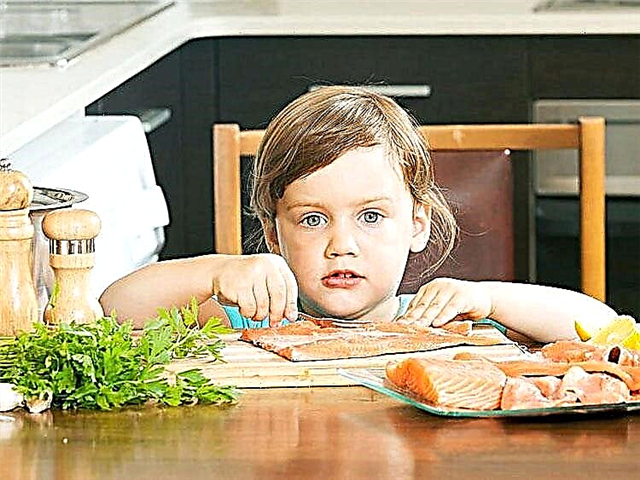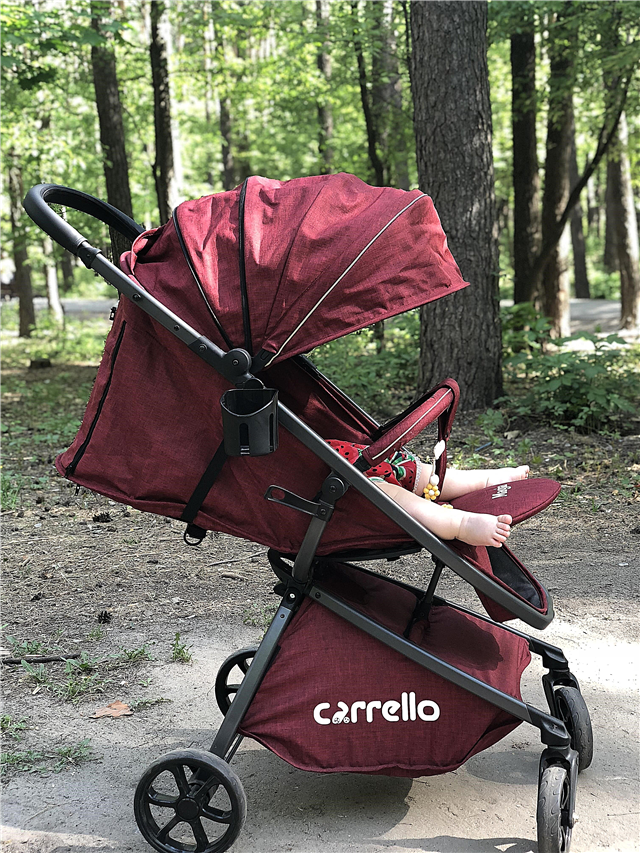
Eight-month-old babies are very active, move a lot and master new spaces with interest, because at this age they can already crawl. What else did the toddler learn by the age of 8 months, what new skills does it already delight parents with, and how can adults help in the development of an infant of this age?
Physiological changes
- The period of teething continues, while their appearance is very individual. Someone at 8 months does not yet have a single tooth, or the first incisor has just appeared, and someone is already trying to gnaw cookies with four teeth. The appearance of the first teeth often causes significant discomfort: the child is capricious, loses his appetite, does not sleep well. The baby may have a fever, change the nature of the chair.
Cholisal triple action dental gel can be used to relieve the symptoms of teething.®... When applied topically, the active ingredients of the drug are absorbed through the mucous membrane of the oral cavity, helping to relieve pain and inflammation, as well as acting on viruses, fungi and pathogenic bacteria. The adhesive gel base helps to retain the active substances on the mucous membrane, prolonging their action. It should be noted that Cholisal gel® does not contain lidocaine, and can be recommended for patients with lidocaine intolerance. Unlike some other local antiseptic and anti-inflammatory drugs, Cholisal® can be used in both adults and children. It is important to be careful when using in children under one year old and consult a doctor first.
- The growth rate of the child slows down slightly, which is associated with an increase in the physical activity of the baby. The muscles of the crumbs are already developed so much that they allow the baby not only to roll over and sit, but also to stand and crawl.
- The child's stool has become more shaped and bears little resemblance to the feces of the baby, which is exclusively breastfed. He has a faint odor, and the frequency of bowel movements is usually 1 time per day.
- The child's memory develops and retains recent events. Thanks to the improvement of memory, the baby is able to repeat actions after parents, recognize familiar objects, heard nursery rhymes, loved ones.

Physical development
For the eighth month of life, the baby adds about 550 grams and becomes 1.5 centimeters higher on average. The circumference of the chest and head circumference each increase by 0.5-1 cm.
Although the rate of development of each child is individual, on the basis of measurements of a large number of children of a certain age, doctors have determined the average value, as well as the boundaries of normal indicators of physical development. Deviation from them causes alertness and is the reason for a detailed examination of the baby. The main parameters for babies 8 months old are presented in the following table:
You can use the calculator to calculate norms for your child... The calculator is based on the standards for height and weight from the World Health Organization (WHO).
About what a child should be able to do at 8 months, see the video by Larisa Sviridova.
What can the kid do?
- The baby for 8 months is very active physically, knows how to sit down, lie down, get up (while pulling himself up by the support), crawl quite quickly, and also step over objects.
- The kid devotes a lot of time to studying toys and constantly trains his own hands. He can freely transfer one toy to another handle, and if the object falls out of his hand, he will look for it. The child likes to roll the ball, press different buttons, flip through the pages of books.
- The babbling of an eight-month-old baby already has intonation that the baby has adopted from his parents. The baby repeats the same syllables many times, so parents constantly hear from the baby "ma-ma-ma" or "ba-ba-ba".
- Children of this age are very cheerful, they are happy with other kids, and they are wary of adult strangers. If mom leaves somewhere, it is very upsetting for an eight-month-old baby. When something does not work out for a child, the baby will be upset, and he will be very happy with his mother's praise.
- The child can show a familiar object when asked "where?" Also, the kid has already learned to wave his hand at the request, to make "okay" and other actions that his parents taught him earlier. The baby really likes games in which actions are repeated.
- A baby of 8 months not only eats from a spoon and even tries to do it on his own, but also takes solid food (for example, baby cookies) in his pens, biting off pieces from it.

Although all children develop at their own pace and some skills can be acquired earlier than their peers, and some later than other children of the same age, there are skills that a baby must certainly possess at 8 months. You should be alerted if the baby:
- Doesn't sit down.
- Doesn't crawl backwards or does not try to crawl at all.
- Doesn't try to get up at the support.
- Cannot stand for several seconds, holding on with both hands.
- Can't hold the toy in his hands.
- The suggested toy is missing.
- Does not transfer a toy from one handle to another.
- Doesn't pronounce syllables.
- Doesn't listen when he hears an adult talking.
- Doesn't show any emotion.

Development activities
- If the baby has not yet mastered crawling on all fours, practice the baby in the water. While bathing, place the baby on its belly at the bottom of an empty tub and turn on the water so that it slowly fills the tub. The water level will rise and become an incentive to lift the baby on the elbows and knees. With this exercise, it is important to ensure that the child does not drink water.
- Another way to teach a child to crawl on all fours is to walk on hands. Raise your child's legs so that the baby is on the arms. Next, rock the little one back and forth. As soon as the baby gets tired, the exercise should be stopped.
- To improve fine motor skills, invite your baby to touch various objects, toys with buttons and locks, boxes with lids, pyramid rings, soft books and many others.
- Since a child at 8 months of age is copying the actions of adults in games, the mother should be shown how to handle new toys. Ride the toy cars with the child, rock the doll, knock on the drum, and let the baby repeat.
- Offer your baby to play with several homogeneous objects, for example, with cubes of different colors, balls, rings from a pyramid. By folding and scattering such objects, the child will learn the connections between them.
- Build a small pyramid out of cubes and show the baby how to break it up with a rolling ball.
- Look at family photos with your baby and ask to show loved ones and the child himself. The child will love to find himself in the photo.
- Play music often and dance with your baby. Let it be motives with different rhythms - classical melodies, children's songs, and songs of modern performers.
- Train your baby's sense of balance by raising and lowering the baby. You can also circle with the baby.
- Make a book shelf for your child that your child can reach. Fill this shelf with bright children's books and let the little one choose a book for "reading" on his own.
- Play with your baby in the bathroom. Let the baby move the floating toys, slap his palms on the surface of the water, collect water into molds, pour from one container to another.
- Allow the baby to play with the kitchen utensils, but at the same time give the baby only safe items - a ladle, containers, lids and others.
- Also, the little one will like to play with a real phone, which should be disconnected from the network for this. Give the little one a pipe and let him "talk".
- While walking, pay attention to the different sounds that the plane, car, bird, dog makes. When doing this, name the sound source.
- Maintain your baby's interest in animals. Purchase plastic or rubber animals and name them and imitate their voices. Show your little animals in books and on the street.
- Give the baby a wooden spoon and a few things to hit. So the child will understand that objects differ not only in appearance, but also in the sound they make.
- In front of the little one, hide the toy by covering it with a blanket, and then invite the baby to find it.

Care
In the morning, as before, the baby is given hygiene measures. They include washing, brushing teeth, planting on a pot, washing. Every evening, the baby is bathed, while playing fun with toys that can swim. In addition, during the day, the child should periodically wash their hands, because the baby crawls and touches various objects. When changing a diaper, the child must be washed under running water.
To harden a child of 8 months, they continue to use air and sun baths, daily walks, airing the room, washing, walking on a wet towel. In addition, the baby is given massage and muscle-strengthening exercises every day. An eight-month-old baby can briefly sit in a walker or playpen.
Nikolai Nikonov, a leading doctor and massage therapist in Russia, in the next video shows how to do massage for the full development of a child at 8 months.
Daily regime
An eight-month-old toddler sleeps less and less, and is awake, studying the world around him with interest, more and more. The total sleep duration of a child of this age is about 15 hours, while at night the baby sleeps up to 10 hours, and in the daytime, most 8-month-old children have two naps for 1.5-2 hours.
Walking with a baby at the age of 8 months is still advised twice a day - in the morning (at about 11-13 hours) and in the afternoon (at about 15-17 hours). Many children continue to sleep during walks, but many children do not sleep all the time they are outside, and for some period they study nature and consider everything around.
Feeding an eight-month-old baby involves 5 meals with pauses between them about 3.5-4 hours. To determine the daily amount of food that the child needs, the weight of the crumbs is divided by 9. On average, a child of eight months receives from 1000 to 1200 ml of food per day and about 200-240 ml per feeding. Read more in the article about the menu for a baby at 8 months.

Breast-feeding on demand at this age is represented by 6-8 feedings during the day and about 6 feedings at night. The volume of complementary foods increases and is presented in the baby's menu with vegetables, fruits, dairy-free porridge, vegetable oil, meat, fruit juice, butter, croutons and biscuits.
Bottle-fed babies get the mixture in the morning feeding, as well as in the last feeding before bedtime. The rest of the time, the menu of the artificial crumbs is formed from complementary foods. Compared to breastfed babies, their diet is more expanded - fermented milk drinks, cottage cheese and yolk are added to it. Porridge for an artificial baby is already boiled in milk, and the volume of most will be higher than that of a breastfed baby.

Typical day
Every new day with an eight month old baby brings many interesting and fun moments. It is clear that the regime for each of the children of this age will be different, but we offer an approximate version of the daily routine that babies 8 months old may have:
Diversify your day with games with your child according to the "Little Leonardo" method, which you can see in the video of O. Teplyakova, an expert in intellectual development.
Frequent problems
- Fear of parting with mom. Children of 8 months are beginning to be afraid to let their mother go and are very worried about parting with her. In addition, at this age, other fears may appear, for example, the child may be frightened by loud sounds of household appliances. Show your baby the source of the sound to stop being intimidating.
- Refusal of complementary foods. The kid may refuse to try new food if he does not like the dish with its consistency, taste or temperature. Perhaps the baby has not yet had time to get hungry or it is very hot in the room. In any case, you do not need to insist. Offer food to your child a little later.
- Restless sleep. Babies eight months old can fall asleep poorly due to physical activity and overexcitement and their night rest is disrupted. To avoid problems with a night's sleep, exclude active games in the evening, do a relaxing massage before going to bed, read a little book.
- Painful teething. The appearance of teeth without pain and discomfort is quite rare. For many children, teeth are cut with painful sensations, changes in stool, fever, whims and other negative manifestations. Chilled special toys that can be chewed can help the baby. To get rid of pain, special gels are used, and at a temperature - drugs with antipyretic effects.
- Allergy to complementary foods. As the menu for eight-month-old babies expands, there is always the risk of a reaction to a new product. This reaction can be manifested by diarrhea, skin rashes, runny nose, constipation, colic, redness of the eyes, and other symptoms. Try to introduce a child of this age only to safe products that rarely cause allergies. While the child should not be given red berries, tomatoes, cocoa, citrus fruits, soy products, and the introduction of milk, eggs and chicken into the children's menu should be very careful.

Tips for parents
- Since an 8-month-old baby is already actively exploring the apartment, crawling everywhere, you should ensure that the baby is safe. The toddler still does not understand the risks and dangers, so the task of the parents will be to remove poisonous substances, tiny and fragile objects, as well as everything sharp and cutting from the path of the child. Hide sockets, hide the sharp corners of furniture, put household chemicals in a closet, and never leave a crawling baby in a room unattended.
- If your 8-month-old has not yet begun to stand up, holding onto the support, you do not need to force the acquisition of this skill. As soon as the muscles of the crumbs are strong enough to stay upright on their legs, the baby will immediately begin his "training", honing a new skill. Remember that many babies do not start to get up by 8 months of age, as well as crawl, and you should not rush them yet.
- If the child has already erupted 4 teeth, encourage chewing by offering the crumbs not mashed potatoes, but pieces of boiled vegetables, as well as baby cookies and crackers.
- Talk to the baby often, but you should not lisp and distort the words. Nevertheless, it is permissible to use abbreviated words, for example, instead of "cat" you can pronounce "kitty".
- When choosing educational activities for a baby, consider not only the time of day, but also the temperament of the baby. If you have a restless toddler, then he will like active games, coups, and crawling. For calm babies, reading a book, folding cubes is more suitable. The interests of the baby should be respected, even if he is still very tiny. If the baby does not like something, do not force or insist.


1. Instructions for the medical use of the medicine Kholisal®
There are contraindications. It is necessary to read the instructions or consult a specialist.



